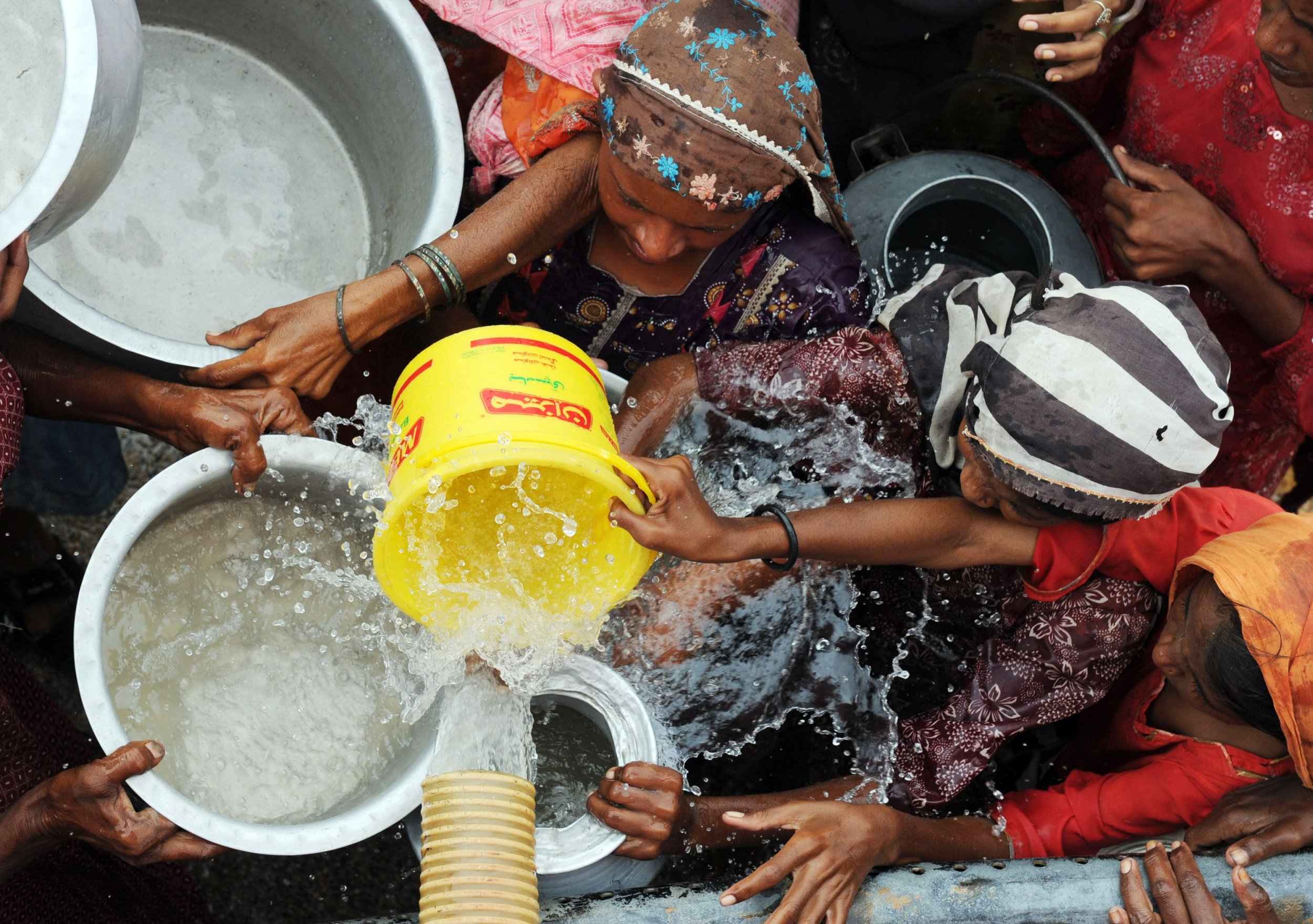
Up to 60 million people in Pakistan are at risk of arsenic poisoning after a new study found high levels of the chemical in water supplies across much of the country.
The study found arsenic levels in groundwater in parts of Pakistan's Indus Valley to be more than 20 times the safe level of 10 micrograms per liter of water recommended by the World Health Organization (WHO). Pakistan's government has a higher safety level of 50 micrograms per liter.
Around 150 million people around the world rely on groundwater that has high levels of arsenic, according to the WHO.
Read more: The world will soon be at war over water
Arsenic can lead to short-term health problems including headaches and diarrhea, while long-term exposure to arsenic-contaminated water can heighten the risk of certain types of cancer, heart problems, skin diseases and deterioration in the function of the nervous system.
The team behind the study, published in Science Advances, collected data on arsenic levels in groundwater from around 1,200 wells across Pakistan at depths varying from 3 to 70 meters. The researchers then used this data to create a risk map showing arsenic concentrations across the country.

Almost two thirds of the wells exceeded the WHO recommendations. Extremely high concentrations of more than 200 micrograms per liter were found in the Indus Valley, the area surrounding the Indus River that flows through northern Pakistan and the Punjab region before reaching the Arabian Sea at the country's southern edge. The study identified the major cities of Hyderabad and Lahore, two of the biggest cities in Pakistan, as major risk hotspots.
Arsenic is a heavy metal that occurs naturally in soil. The chemical gets into water supplies when it is leached from rocks and sediments.
Arsenic is more likely to leach into groundwater supplies if the earth is young, since most of the chemical in older aquifers—bodies of permeable rock that can transmit groundwater—has likely already been washed away into the sea.
The scientists also found that irrigation practices, where the flat Indus Plain is flooded with water to support crop growth, are increasing the risk of arsenic getting into water supplies.

"This number [of people at risk] is alarmingly high and demonstrates the urgent need for verification and testing of all drinking water wells in the Indus Plain, followed by appropriate mitigation measures," wrote the authors of the study, which was led by Dr. Joel Podgorski of the Swiss Federal Institute of Aquatic Science and Technology.
Pakistan's government has said it is aware of the problem but that indiscriminate use of water supplies is making tackling it more difficult. "Because of lack of rules and regulations, people have exploited the groundwater brutally, and it is driving up arsenic levels," said Lubna Bukhari, the head of the government's Council for Research in Water Resources, ABC News reported.
Some experts doubted whether the figures were entirely accurate but said that the problem was still significant. "Even if the population at risk was only half that estimated, it would mean that the estimates of the number of people around the world impacted by such high arsenic hazard groundwaters would need to be substantially upwardly revised," said David Polya, professor of environmental chemistry at the University of Manchester in the U.K., who was not involved in the study, the BBC reported.
The study's authors recommended a range of mitigation methods, including awareness raising, health intervention programs and alternative sources of water, such as deeper wells, which lessen the risk of arsenic leaching into groundwater.
Uncommon Knowledge
Newsweek is committed to challenging conventional wisdom and finding connections in the search for common ground.
Newsweek is committed to challenging conventional wisdom and finding connections in the search for common ground.
About the writer
Conor is a staff writer for Newsweek covering Africa, with a focus on Nigeria, security and conflict.
To read how Newsweek uses AI as a newsroom tool, Click here.






